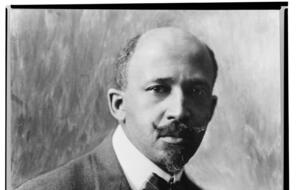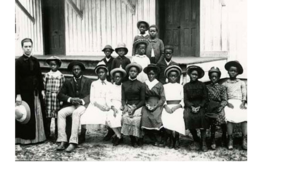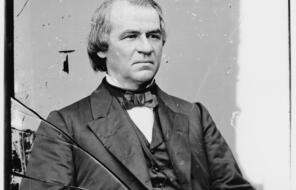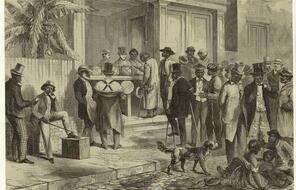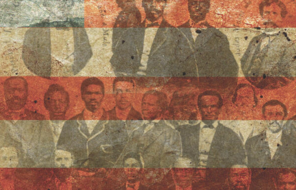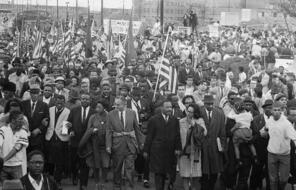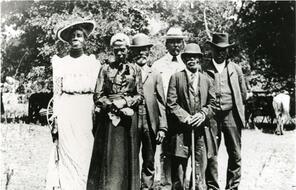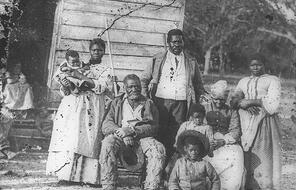Excerpt from Mississippi Black Codes (1865)
At a Glance
Subject
- History
- Racism
- Human & Civil Rights
CIVIL RIGHTS OF FREEDMEN
Section 3: . . . [I]t shall not be lawful for any freedman, free negro or mulatto to intermarry with any white person; nor for any person to intermarry with any freedman, free negro or mulatto; and any person who shall so intermarry shall be deemed guilty of felony, and on conviction thereof shall be confined in the State penitentiary for life; and those shall be deemed freedmen, free negroes and mulattoes who are of pure negro blood, and those descended from a negro to the third generation, inclusive, though one ancestor in each generation may have been a white person.
Section 5: . . . Every freedman, free negro and mulatto shall, on the second Monday of January, one thousand eight hundred and sixty-six, and annually thereafter, have a lawful home or employment, and shall have written evidence thereof . . .
Section 6: . . . All contracts for labor made with freedmen, free negroes and mulattoes for a longer period than one month shall be in writing, and a duplicate, attested and read to said freedman, free negro or mulatto by a beat, city or county officer . . . and if the laborer shall quit the service of the employer before the expiration of his term of service, without good cause, he shall forfeit his wages for that year up to the time of quitting.
Section 7: . . . Every civil officer shall, and every person may, arrest and carry back to his or her legal employer any freedman, free negro, or mulatto who shall have quit the service of his or her employer before the expiration of his or her term of service without good cause . . .
VAGRANT LAW
Section 1: . . . That all rogues and vagabonds, idle and dissipated persons, beggars, jugglers, or persons practicing unlawful games or plays, runaways, common drunkards, common night-walkers, pilferers, lewd, wanton, or lascivious persons, in speech or behavior, common railers and brawlers, persons who neglect their calling or employment, misspend what they earn, or do not provide for the support of themselves or their families, or dependents, and all other idle and disorderly persons, including all who neglect all lawful business, habitually misspend their time by frequenting houses of ill-fame, gaming-houses, or tippling shops, shall be deemed and considered vagrants, under the provisions of this act, and upon conviction thereof shall be fined not exceeding one hundred dollars, with all accruing costs, and be imprisoned, at the discretion of the court, not exceeding ten days.
Section 2: . . . All freedmen, free negroes and mulattoes in this State, over the age of eighteen years, found on the second Monday in January, 1866, or thereafter, with no lawful employment or business, or found unlawful assembling themselves together, either in the day or night time, and all white persons assembling themselves with freedmen, free negroes or mulattoes, or usually associating with freedmen, free negroes or mulattoes, on terms of equality, or living in adultery or fornication with a freed woman, freed negro or mulatto, shall be deemed vagrants, and on conviction thereof shall be fined in a sum not exceeding, in the case of a freedman, free negro or mulatto, fifty dollars, and a white man two hundred dollars, and imprisonment at the discretion of the court, the free negro not exceeding ten days, and the white man not exceeding six months . . .
Section 5: . . . All fines and forfeitures collected by the provisions of this act shall be paid into the county treasury of general county purposes, and in case of any freedman, free negro or mulatto shall fail for five days after the imposition of any or forfeiture upon him or her for violation of any of the provisions of this act to pay the same, that it shall be, and is hereby, made the duty of the sheriff of the proper county to hire out said freedman, free negro or mulatto, to any person who will, for the shortest period of service, pay said fine and forfeiture and all costs . . .
CERTAIN OFFENSES OF FREEDMEN
Section 1: . . . That no freedman, free negro or mulatto, not in the military service of the United States government, and not licensed so to do by the board of police of his or her county, shall keep or carry fire-arms of any kind, or any ammunition, dirk or bowie knife, and on conviction thereof in the county court shall be punished by fine . . .
Section 2: . . . Any freedman, free negro, or mulatto committing riots, routs, affrays, trespasses, malicious mischief, cruel treatment to animals, seditious speeches, insulting gestures, language, or acts, or assaults on any person, disturbance of the peace, exercising the function of a minister of the Gospel without a license from some regularly organized church, vending spirituous or intoxicating liquors, or committing any other misdemeanor, the punishment of which is not specifically provided for by law, shall, upon conviction thereof in the county court, be fined not less than ten dollars, and not more than one hundred dollars, and may be imprisoned at the discretion of the court, not exceeding thirty days.
Section 3: . . . If any white person shall sell, lend, or give to any freedman, free negro, or mulatto any fire-arms, dirk or bowie knife, or ammunition, or any spirituous or intoxicating liquors, such person or persons so offending, upon conviction thereof in the county court of his or her county, shall be fined not exceeding fifty dollars, and may be imprisoned, at the discretion of the court, not exceeding thirty days . . .
1
- 1Excerpted from William E. Gienapp, ed., The Civil War and Reconstruction: A Documentary Collection (New York: W. W. Norton, 2001), 325.
How to Cite This Reading
Facing History & Ourselves, "Excerpt from Mississippi Black Codes (1865)," last updated March 14, 2016.
This reading contains text not authored by Facing History & Ourselves. See footnotes for source information.


